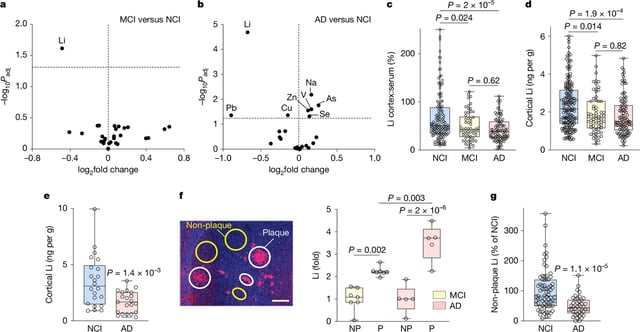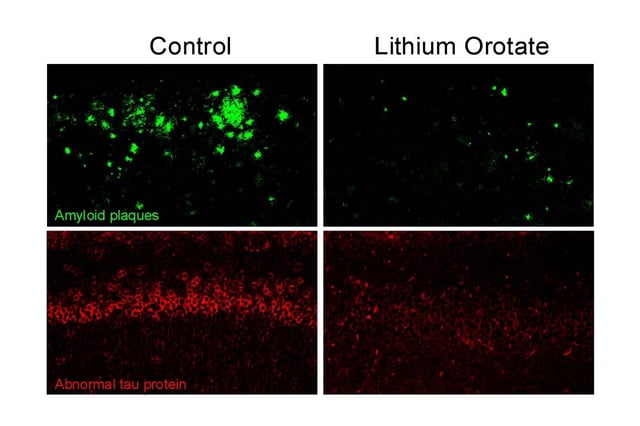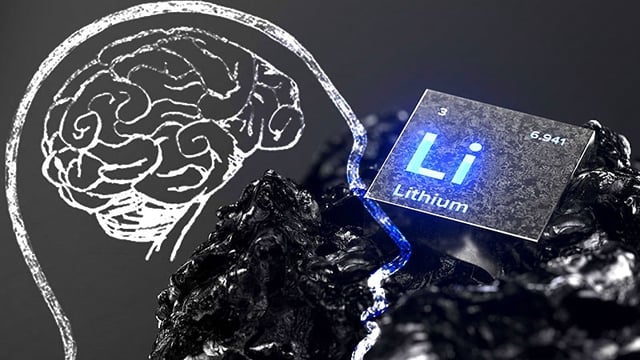Overview
- Analyses of hundreds of human brains found naturally occurring lithium was lower in mild cognitive impairment and Alzheimer’s than in normal cognition.
- Amyloid plaques sequestered lithium in Alzheimer’s tissue, reducing its availability to neurons and disrupting normal cellular processes.
- In mouse models, dietary lithium depletion accelerated amyloid and tau buildup, increased inflammation, thinned myelin, caused synapse loss, and impaired memory.
- A low‑dose, plaque‑evasive lithium orotate reduced AD‑type pathology and restored cognition in mice, with effects reported at roughly one‑thousandth of psychiatric dosing.
- Researchers highlight GSK3β overactivity as a key mechanism during lithium loss and caution that human safety, dosing, and efficacy remain unproven pending controlled trials.



